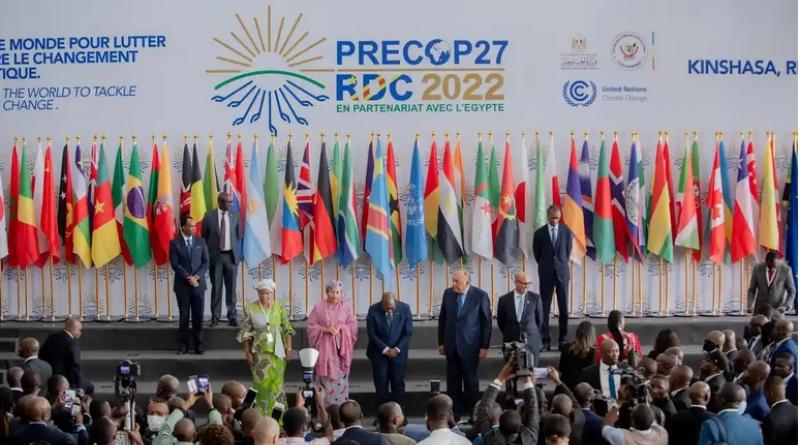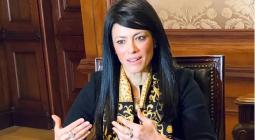African countries urge rich nations to honour $100bn climate finance pledge

Ministers rebuke ‘shameful’ failure to meet funding promises for poorer countries to cope with climate crisis ahead of Cop27 summit
Ministers and high-ranking officials of African nations have urged rich countries to do more to combat the climate crisis, and called the failure to meet a funding promise from 2009 “shameful”.
At a conference in Giza, Egypt, on Wednesday in the run-up to next month’s UN climate summit, Wael Aboulmagd, Egypt’s special representative for Cop27, attacked wealthier nations for not honouring an agreement to provide $100bn (£87.5bn) a year to developing countries by 2020.
The sum was pledged during Cop15 in Copenhagen to help cut greenhouse gas emissions and cope with the impact of the climate crisis on those most affected, and for which the developed world had an “added responsibility”, Aboulmagd said. It was predominantly carbon emissions from Europe and the US that were “responsible for where we are right now”, he said.
Aboulmagd said the $100bn target – itself “a drop in the ocean” of what was needed – had never been met since it was agreed 13 years ago
The failure of rich countries to meet their climate commitments is likely to dominate Cop27, which will be held in the Egyptian resort of Sharm el-Sheikh.
At an official preparatory meeting in Kinshasa in the Democratic Republic of the Congo yesterday, speaker after speaker echoed Aboulmagd’s frustration.
The UN deputy secretary general, Amina Mohammed, said investment in climate adaptation in developing countries “must be a priority” for Cop27. Speaking of the decision made at Cop26 to double the climate funding for adaptation to $40bn by 2025, Mohammed said that $40bn was “only a fraction of the $300bn that will be needed annually by developing countries for adaptation by 2030”.
DRC’s environment minister, Eve Bazaiba, said a lack of climate finance from rich countries put poor countries in Africa in a difficult position, whereby agreeing not to exploit natural resources needed for development in accordance with climate crisis commitments could amount to letting “our children and grandchildren die because we must protect the environment”.
One of the biggest criticisms of last year’s Cop26 was its failure to make significant progress on climate finance. In addition to continued short fallings on the 2009 financial commitments, developed countries blocked the creation of a “loss and damage fund” to help those affected by climate crisis-related disasters.
Reuters reported last month that Egypt would work to make loss and damage a key part of the Cop27 agenda.
The issue carries particular weight at the moment after floods in Pakistan destroyed more than 700,000 homes and affected as many as 33 million people. Pakistan’s planning minister has put the costs of the floods at $10bn, almost 4% of the country’s GDP.
cover photo: From left, Ève Bazaiba, deputy PM of the DRC; Amina Mohammed, UN deputy secretary general; DRC PM Jean-Michel Sama Lukonde Kyenge; Sameh Shoukry, Egypt’s foreign minister; and Wael Aboulmagd, Egypt’s Cop27 envoy at the Kinshasa meeting. Photograph: Courtesy - Précop27 RDC





